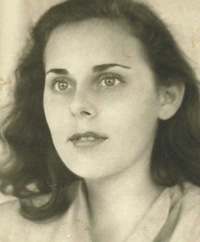Barbara Probst Solomon (1928-2019)
In 1948, three young activists rescued two Spanish students from the Francoist labor camp at Cuelgamuros, outside of Madrid, where prisoners of war were building the monument that would later become known as the Valley of the Fallen. They were Paco Benet, the brother of the Spanish novelist Juan Benet; Barbara Mailer, the sister of the novelist Norman Mailer; and Barbara Probst Solomon, a 20-year old New Yorker who would go on to a distinguished writing career. She passed away in September.
Barbara Probst was born to a wealthy Upper East Side family. Her father, J. Anthony Probst, was a lawyer and chairman of the Self-Winding Clock Company. Soon after graduating from the Dalton School, she left for Europe, and didn’t go to college until years later, earning a BA in Spanish from Columbia. She married Harold W. Solomon, a law professor, who died at age 44, in 1967.
“Neither Barbara nor I had any true sense of what we were getting into,” Solomon later wrote about the 1948 rescue mission in her memoir, Arriving Where We Started. “As for danger or consequences, life was to be led like a book; in books good people lived dangerously.” Solomon would remain linked to Spain for the rest of her life. Following the rescue, she and Benet lived in Paris, from where they published Península, a magazine of the anti-Franco resistance. After Spain’s transition to democracy, Solomon became a regular contributor to El País, the country’s newspaper of record.
Solomon’s books include two novels, The Beat of Life (1960) and Smart Hearts in the City (1992); the memoir Short Flights; and Horse-Trading and Ecstasy (1989), a collection of essays.














Hi ha també un film sobre l’aventura del rescat dels dos joves republicans espanyols, es diu ‘Los años bárbaros’. Salut i república.